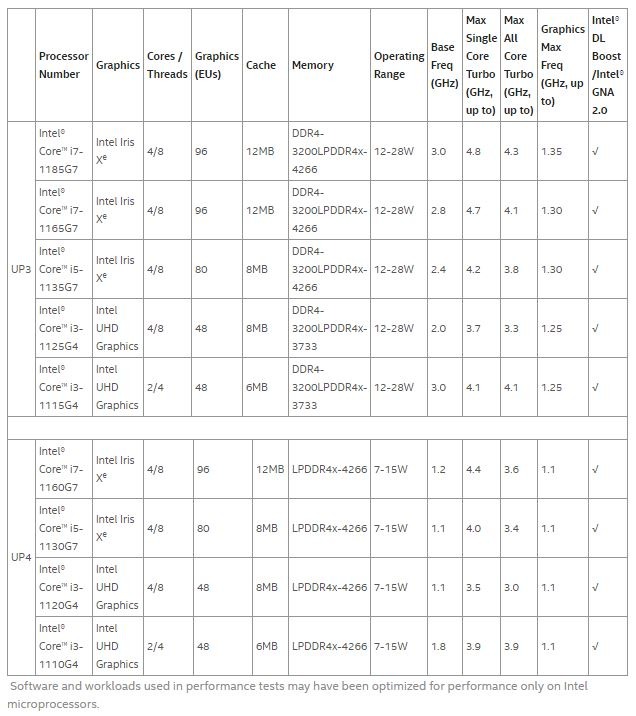Intel 11th-Gen Core Laptop CPUs Push Back Against AMD
Intel has officially revealed its 11th-generation Tiger Lake Core CPUs, and with them, the company is looking to take the fight to AMD in the realm of laptops. During its announcement today, Intel said unequivocally that the 11th-gen Core CPU is "the world's best processor for thin and light laptops," and that the series will comprise nine new SKUs across the Core i3, Core i5, and Core i7 lines.
We don't have benchmarks just yet, which makes it difficult to judge how these processors will stack up against competitors and predecessors, but Intel did give us some morsels of information today. For starters, the company says that these CPUs will support clock speeds of up to 4.8GHz, and while they're still built using Intel's 10nm process, Intel is improving them with a "SuperFin" design that improves power efficiency.
While we can't compare these processors to competitors at the moment, Intel made a number of boasts about their capabilities, promising around a 20% performance increase. The company also says that we'll twice the graphics performance thanks to Iris Xe graphics, which are replacing Intel UHD integrated graphics in some of these 11th-gen processors.
When it comes to content creation, Intel says that we can expect "2.7x faster real-world photo editing and up to 2x faster real-world video editing." 11th-gen Core processors also support Thunderbolt and Wi-Fi 6, with a built-in AI Engine that can enhance audio and blur backgrounds during the video calls many of us are making on a daily basis during the pandemic. You can check out specifications for each of these nine new CPUS in the table below.

In addition to announcing the 11th-gen processors today, Intel also announced that it's rebranding its Project Athena certification program. From here on out, Project Athena will be called Intel Evo, and it will require that certified computers offer "nine or more hours of real-world battery life" on laptops that use FHD displays, fast-charging that can see a dead battery charge to four hours of usage in 30 minutes, and system wake from sleep in less and one second.
So, the claims Intel made today certainly sound impressive, but as always, the proof is in the pudding. In this case, the pudding will be real-world tests against competing laptop CPUs, and with Intel saying that there are more than 150 laptops in the works with these CPUs at their center, it shouldn't be long before we have more detailed information about how these CPUs stack up.
